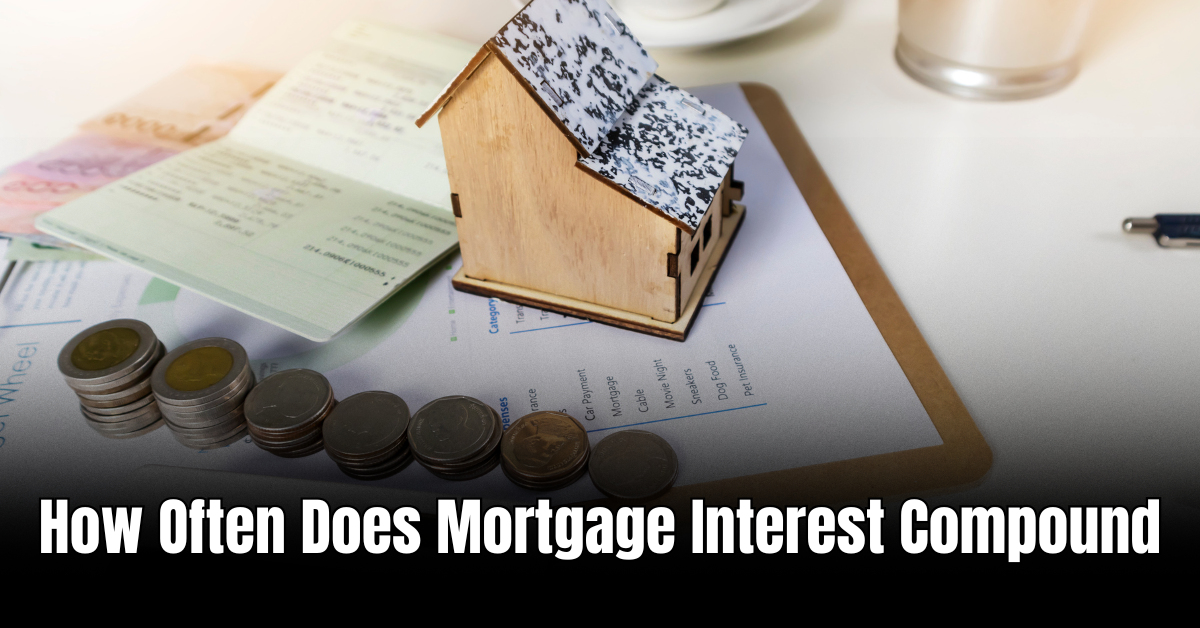When it comes to mortgage loans, understanding how interest is calculated is essential. One crucial aspect to consider is how often mortgage interest compounds, as it directly affects the overall cost of borrowing.
What is Compound Interest?
Before we delve into the frequency of compounding, let’s first understand what compound interest actually means. Compound interest refers to the practice of adding interest to the initial loan amount, and subsequently, calculating interest on the new total, including both the principal borrowed and any previously accumulated interest.
In simpler terms, compound interest allows your debt to grow not only based on the principal amount but also based on the interest that has already accrued.
Understanding Mortgage Interest
When you take out a mortgage loan, the lender charges you interest for borrowing the money. Mortgage interest is typically calculated as an annual percentage rate (APR) and is applied to the principal amount borrowed.
The interest on your mortgage can be compounded in different ways, depending on the terms and conditions of your loan agreement. The three common compounding frequencies for mortgage interest are: annually, semi-annually, and monthly.
Annual Compound Interest
With an annual compounding frequency, the interest on your mortgage is calculated once a year. At the end of each year, the lender assesses the interest amount and increases the outstanding balance accordingly.
For example, if you have a $250,000 mortgage with a 5% interest rate compounded annually, the lender would add $12,500 in interest to your outstanding balance at the end of the year.
Semi-Annual Compound Interest
When compounding semi-annually, the lender calculates and applies the interest to your mortgage twice a year. This means that after the first six months, the interest is added to the balance, and then the same process occurs at the end of the second six months.
Continuing with the previous example, if your $250,000 mortgage had a 5% interest rate compounded semi-annually, the lender would add $6,250 in interest to your outstanding balance every six months.
Monthly Compound Interest
Monthly compound interest involves recalculating and applying the interest to your mortgage balance every month. This means that your interest is added and compounded twelve times a year.
Using the same scenario with a 5% interest rate compounded monthly, the lender would add approximately $520.83 of interest to your outstanding balance every month.
Comparing the Different Compounding Frequencies
Now that we understand how compound interest works with different compounding frequencies, let’s take a moment to compare their impact on your mortgage.
| Compounding Frequency | Total Interest Paid (over a 30-year mortgage) |
|---|---|
| Annual | $1,375,000 |
| Semi-Annual | $1,425,000 |
| Monthly | $1,450,000 |
As you can see, a higher compounding frequency results in a higher total interest paid over the course of the mortgage. This means that you’ll end up paying more overall if your mortgage interest compounds monthly compared to annually.
Choosing the Right Compounding Frequency
When selecting a mortgage, it’s essential to consider the compounding frequency and how it aligns with your financial goals. While monthly compounding may result in higher interest costs, it also allows for more frequent reductions in the principal amount as each payment is applied to the balance. This can help you pay off your mortgage faster.
On the other hand, annual compounding may lead to lower interest costs but may also slow down the rate at which your principal decreases. Ultimately, it’s a balance between interest and principal reduction that would align with your financial situation and preferences.
Frequently Asked Questions: How Often Does Mortgage Interest Compound: Unlocking The Secrets Of Compounding
How Often Does Mortgage Interest Compound?
Mortgage interest typically compounds monthly, multiplying the outstanding balance by the monthly interest rate.
Why Is It Important To Understand Mortgage Interest Compounding?
Understanding compounding interest helps borrowers make informed financial decisions, ultimately minimizing the overall cost of the loan.
Can Mortgage Interest Compounding Impact The Total Repayment Amount?
Yes, compounding interest can significantly increase the total amount repaid over the life of the mortgage.
How Can Borrowers Mitigate The Impact Of Mortgage Interest Compounding?
Making additional payments or paying biweekly can help reduce the impact of compounding interest on a mortgage loan.
Conclusion
Understanding how often mortgage interest compounds is crucial when considering the overall cost of your mortgage. The compounding frequency affects the total interest paid, and ultimately, how long it takes to pay off your loan.
When choosing a mortgage, carefully evaluate the terms and conditions, including the compounding frequency, to ensure it aligns with your financial goals and abilities. Remember, it’s always a good idea to consult with a mortgage professional who can provide personalized advice tailored to your specific needs and circumstances.
Ismail Hossain is the founder of Law Advised. He is an Divorce, Separation, marriage lawyer. Follow him.





Leave a Reply